Water Leak Need Emergency Plumbing Service!No matter how vigilantly we act, life gives us new surprises every moment! Some surprises are pleasant, and others are just signs of a big problem waiting to be treated! As soon as winter arrives, you should get ready for the second type of surprise. Due to extreme weather in Canada, your property needs an inspection before the winters start. However, sometimes, it is impossible due to your work or family commitments, so we advise performing a Water Leak Detection. But do you know what this lapse can result in? Unattended problems going around your property can cost you thousands of dollars. It is always best to pay attention when things seem to be working well, as a stitch in time saves nine. In our blog, we’ll share different plumbing problems that might be budding in your pipelines. Most homeowners have to go through plumbing issues arising in their water pipelines, sewer pipelines, or gas pipelines. It can include any clogged drain, leaked sewer pipes, frozen pipes, or the consequences of these problems. These ignored problems can result in water damage, sewer backup, or mould growth. The repairs of water damage can easily cost you anywhere around $5000. Water Leak That Will Require Emergency Plumber?Every problem we will discuss might be different, but requires the same solution – Emergency Plumbing. Take immediate action to call plumbing service if any of the following emergency is identified in your property. Water Leak Pipe?Leaky pipes are potentially the most significant problem most homeowners face. But unfortunately, there can be many reasons why your pipes might be leaking. The leaking pipes can result in water damage extending to your house ceilings, floors, furniture, and other belongings. It can result in mould growth on your property, resulting in severe health hazards for residents. Besides, the water wastage due to leaking pipes can make significant additions to your water bill. According to estimates, a leaking pipe can result in around 90 gallons of water wastage every day. What can be the reasons for leaking pipe? Here are some of the most common reasons why you have a leaky pipe in your home’s pipeline:
Broken Water Main Valve?Broken water main is another problem faced by a lot of Canadian households. Water main valve is the primary link between your home’s plumbing system and public water supply. If you fail to locate a broken or damaged water main before time, it can result in irreversible damages. Due to the underground network of the main water valve, you might fail to locate a budding problem before it actually starts showing red signs. Therefore, regular inspection is recommended to save yourself from any future challenges. What can cause your water main valve to get broken? The following can be the reasons behind your home’s water main breakage:
Clogged Drain Pipe?Water clogs themselves are signals to a persisting problem going on in your pipelines or plumbing system. A plunger might be enough to fix a sink clogged drain. But if the clogged drain are occurring more frequently, you need to pay attention. If left unattended, the damages can result in complete failure of your plumbing system or pipes bursting. It can also cause flooding or water damage. What can be the causes of clogged drain pipe?
Any tree roots intruding on your underground pipelines can also get stuck in pipes. Solving the stuck tree roots can be complex and require extensive repairs. Frozen Water Pipe from the Winter!You might be relaxed and unbothered about frozen pipes as you reside in a locality with no problem of freezing temperature. Let us tell you that frozen water pipes can still be a problem, even if freezing temperatures are rare in your area. And it can be more disastrous as most people will not insulate their pipelines in such areas. When the temperature in exteriors decreases, the frozen water in pipelines results in the expansion of pipelines. As a result, your pipes might get cracks and leakages. There is even a risk of pipe bursts that can cause flooding. The persistent problem of flooding can result in the growth of dangerous moulds on your property. It signifies a plethora of new issues for you. You can take protective measures once you’ve identified a frozen pipe. Either call emergency plumbing service to take care of frozen pipes for you. What can cause frozen water pipes?
You might be wondering which pipelines are most likely to get suffered from the freezing problem. Most commonly, pipes along exterior walls having inadequate insulation might get suffered from the extreme temperature outside. Also, Pipelines in attics or basements do not get the same amount of heat as other parts of your home. As a result, the chances of freezing are high. Burst Water Pipe?A burst water pipe is an event that might take place due to any of the instances mentioned above. The material of your pipe does not affect if the pipe can break or not. Either it is plastic or steel, you are at risk of getting cracks in the pipeline. A burst water pipe is usually caused by ignorance of any of the problems we’ve mentioned earlier. If you had ignored water clogs, frozen pipes, leaking pipes, etc., you should be ready to bear the consequences of the burst water pipes. What to do once you’ve discovered a burst water pipe in your property? The first thing you’re supposed to do is shut off the main water supply as soon as possible. The next thing to do is calling emergency plumbing services to rescue you from the damage. It is also recommended to turn off the power supply to avoid any short circuiting due to water. The sooner you take corrective measures, the better. Clogged Or Leaky Sewer Line?Clogged Or Leaked Sewer LineJust like your internal pipeline, your home’s or commercial property’s sewer line can also become a victim of leakage or clogging. If you have frequent drain clogs at different places in your property, it might be a sign of a bigger problem(sewer line clog). The results of the leaking sewer line can be severe. It can include sewer backup, burst sewer pipes, or wastewater flooding. You must pay attention to alleviate any reasons for clogging because sewer backup or flooding can cause serious health hazards besides property damage. Sewer Backup?When the clogging gets severe, or there might be another problem in the sewage drain of your area resulting in sewer backup. The common reasons for sewer backup are the same as for clogged drains. The reasons include:
What To Do If You Have A Plumbing Emergency In Your Home?As soon as you’ve discovered any plumbing emergency, you should call the plumbing emergency services for your property’s repairs and restoration. Time Is Very Crucial when a disaster like this happens. What are you supposed to do before the restoration service provider arrives?
We understand it is difficult to be vigilant, active, and indecisive when a catastrophe like a plumbing emergency occurs at your property. Therefore, you can rely on a restoration service that takes no time to be at your place and help you fight the water damage. GTA Restoration is a 24/7 emergency plumbing and repair service to help you deal with most plumbing emergencies and repairs consequent to damages. We’re always ready to serve you and proudly serve many customers with their plumbing emergencies, house remodelling, repairs and restoration after water damage, etc. What services are offered by GTA Restoration? Emergency Plumbing Service?GTA Restoration proudly serves the customers for emergency plumbing services 24/7. The plumbing services include:
Water Damage Restoration!GTA Restoration provides water damage restoration services that include:
Mould Removal and Remediation!Mould growth can be hazardous for your health and the surrounding environment. It can induce spores, fragments, and unstable organic compounds to enter the air. Consequently, the air particulates can produce irritants, toxic allergens, or mycotoxins. It can also result in many chronic health conditions like asthma, lung irritation, etc.
GTA Restoration provides emergency mould removal services to get rid of any mould growth after water damage. Our team will inspect your property for any mould growth and will undertake a mould remediation process. Most common places where mould can grow after your property has suffered from water damage are:
Do not wait for the water damage or any plumbing system problem to become bigger and prove to be a nightmare for you. Take action now to call the Restoration service to inspect your property and help you get rid of any persisting problem. How to Fix Water Damaged Walls?It doesn't matter if your house is old or new, you're bound to face water damage at some point in your life. If you've already experienced a water leak in the past, there is a high chance you'll experience it in the future as well. Plumbing leaks and water damaged walls are inevitable. Why? Because the plumbing system in your house is operating non-stop. Pipes and appliances that use water may eventually start leaking due to the constant use. Plumbing leaks waste a lot of water. In fact, over 10,000 gallons of water is wasted every year in an average household's water leaks. Water damaged walls may also result due to floods and storms. This kind of water damage is easy to identify. However, most of the time, the cause of water damage isn't always so obvious. If left unaddressed, water damage can destroy your plumbing system and cause structural issues to your drywall. If you found water damaged walls in your house, it's safe to assume there's more damage than you can see on the outside. But the good news is that water damaged walls are repairable. You can call the professionals to repair the damaged walls for you. Common Signs of Water LeaksIf you're reading this guide, you might have already spotted the water leak somewhere in your home. Yet, sometimes, water leaks may be hidden. These kinds of leaks are more dangerous. So, it's better to know the common signs of water leaks before it's too late. The signs of water leakage include:
It's possible that the damage has already occurred to the drywall by the time you spot these signs. The gypsum drywall turns into a huge problem when it gets wet. The reason is that gypsum drywall is porous and soluble in water. Water leakage leads to the growth of mold, bubbling, warping, stains, and deterioration. When the water reaches the drywall, it makes your walls and ceilings look unsightly. Eventually, it causes the wallboard to collapse and fall apart. Steps to Repair the Water Damaged WallsFollow these 7 steps to fix the water damaged walls:
You need to pay attention to your plumbing system and locate any possible water leaks. Faucets in the kitchen and bathrooms, showerheads, hot water heaters, washing machines, refrigerators, freezers, garbage disposals, and dishwashers are prone to leaks. Use your eyes and ears to detect the water leaks. Look for soft spots and soggy areas, and hear if there is any sound of water leakage. Moreover, you can check your water meter and water bills. The best way to confirm water leakage is to check your water meter. Turn off all the faucets and appliances that use water. Note your water meter readings. Avoid using water for at least an hour. Now, check the water meter readings again. If the reading is not the same, there's water leakage. By looking for the above-mentioned signs of water leakage, you easily locate the leak. Once you do that, you have to fix the water leak. If your faucet is leaking, you can replace the washer and fix the leak. However, if any of the plumbing pipes are leaking, you can apply epoxy putty as a temporary fix.
However, if the wall has absorbed a lot of water, you should get a dehumidifier and some towels. Run the dehumidifier and start blotting the walls carefully. This will help to remove the moisture. But be sure not to press too hard as the drywall will already be too soft. If the Water Damage Toronto is due to flooding, you should rent out a large-capacity dehumidifier to thoroughly dry out the walls, surrounding wood, and carpets.
Next, you have to start removing the damaged sections of the wall. Don't forget to put down tarps and drop cloths. It'll make clean up easier for you because the tarps will catch the removed pieces, dust, and debris. Now, take drywall saw to cut out the damaged section. Make sure you don't cut any wires or damage the plumbing while cutting the wall. Also, it's important to note that cutting out the damaged part in the shape of a square or a rectangle is highly recommended. It'll help you fit the patches easily and make the blending of the mud and taping work smoother for you. How to Manage Damage to Your Home? After removing the damaged section, check the studs and insulation to see whether they're completely dry or not. By doing so, you can prevent the new piece of drywall from getting damaged due to the already present moisture.
Water damaged drywalls are the perfect breeding spots for molds. Sometimes, the drywall has no structural defects in spite of the water damage. However, there is a high chance it might be infected with black mold growth. So, once you have removed the damaged sections, disinfect the area and kill the mold. You can use diluted chlorine bleach to get rid of the mold and even the small water stains. Carefully scrub the drywall, and within a few hours, the mold will be killed.
In the next step, you have to take the measurements of the wall from which the damaged section has been removed. Take 2 to 3 measurements and take the average. You can use this average measurement to cut a replacement piece of drywall. It's better to cut the replacement piece 2-inch longer and 2-inch wider than the hole. Now, lay this replacement piece down with the backside facing up. Take a pencil and draw a line by measuring 1-inch from all four sides. Your replacement piece is ready, and it'll fit perfectly. To fit the replacement piece, you have to place 4 drywall clips around the hole and secure them with a drywall screw. But be careful not to over-tighten the screws. Still, if the replacement piece isn't a perfect fit, place it against the hole and cut it out using a utility knife.
Take a mesh or paper tape and put it over the seams. Now, start to apply the first coat of the mud (a.k.a. joint compound). Properly cover the joint and blend the mud. It'll be followed by priming and painting. Spread out the mud about 4 to 6-inches from the repaired area and let it dry for 12 to 24 hours. When the first coat is completely dry, wear a dust mask and take fine-grit sandpaper and a sanding block to sand off any ridges and high spots. You'll have to apply a second coat as well. But before you do that, use a vacuum and wipe off the remaining dust. Now, apply the second coat, blend it properly, and let it dry again for 12 to 24 hours. Again, sand off the ridges. The dried mud absorbs a lot of moisture, so you need to coat it with a primer that'll effectively seal the area. After that, you can start painting the newly repaired section. You can either use a roller or paintbrush to paint the repaired area. Pour the paint into the paint tray and coat your paintbrush or roller. Then use a zigzag pattern to paint the surface to give your paint a flat finish. After blending the seams, priming, and painting, the water damaged wall will be completely fixed.
Finally, take a shop vacuum and clean up all the dust and debris. Carefully pick up the tarps you had laid down and be sure not to spread around any pieces, debris, and paint on the tarps. Don't forget to clean the paintbrushes and dispose of all the used paint cans. You can use warm, soapy water to thoroughly clean the tools, paintbrushes, and roller covers. Once you have done all that, it's time to remove the painter's tape. You can prevent damage to the fresh paint by removing the tape at a 45-degree angle. How Can GTA Restoration Help You?If you can't fix the water damaged walls yourself, GTA Restoration can do the job for you. We have a team of licensed and highly-experienced professionals who will expertly assess the water damage, locate the cause, and repair the damaged walls. Don't wait until the damage gets worse. Contact us right now and save yourself from a huge emergency plumbing disaster. |
Restoration
|
- Emergency Response 24-7
- 647-692-3155
- Service Toronto
-
Restorations
- Disaster Restoration
- Disaster Reconstruction
- Carpet Restoration
- Art Restoration
- Catastrophe Cleanup
- Wind, Tornado and Hurricane Damage
- Hail Damage
- Environmental Cleanup
- Soft Content Restoration
- Document Recovery
- Content Handling, Cleaning & Storage
- Waterproofing
- Foundation Repair
- Crawl Space Repair
- Crack Repairs
- About Us
- Free Advice
- Special Offers
- GTA Restoration
- Toronto
- Asbestos Removal Services Oakville
- Soot Cleanup Oakville
- Sewage Backup Scarborough
- Blog
- Water Damage Restoration East York
- Water Damage Restoration
- Black Mold Remediation Mississauga
- Mould Inspection Mississauga
- Thank you
|
|
|
|
|
|
|
Check your card balance!
|
|
|
Copyright © 2009 - 2024 GTARestoration.net All Rights Reserved. For more Info, visit: "GTA Restoration"
Designed by GTARestoration
Designed by GTARestoration




















 RSS Feed
RSS Feed








